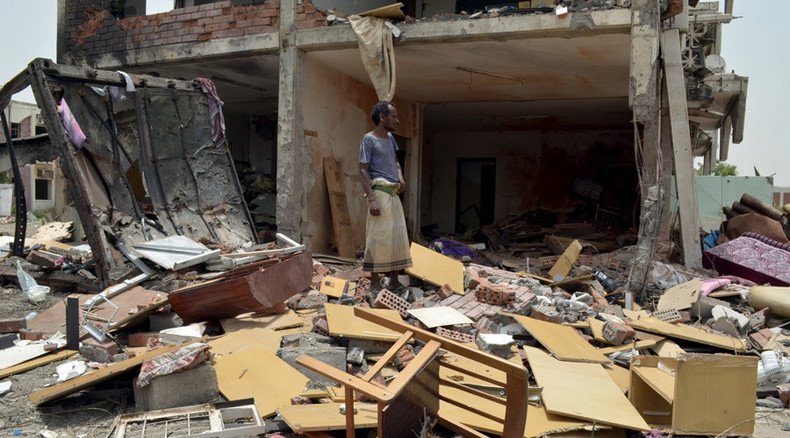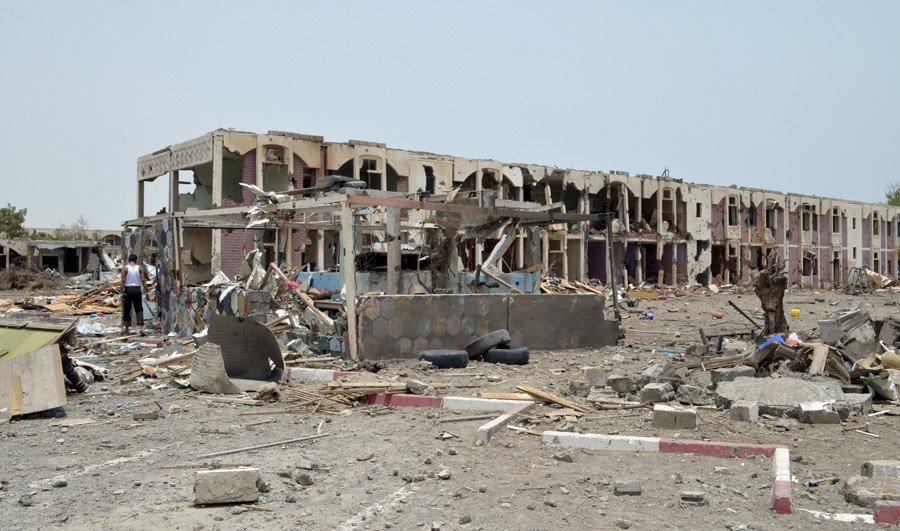HRW brands Saudi-led airstrike ‘apparent war crime’

Human Rights Watch has labeled as an “apparent war crime” a Saudi-led air raid on Yemen last week, which took the lives of 65 civilians in residential areas. It further charged the initiative with failure to investigate its transgressions during the bombing campaign.
The death toll was 120 people, according to the AP; 80, according to Reuters; and 65, as per HRW’s accounts.
In continuing the airstrikes it launched against Shiite rebels in March, the Saudi-led coalition struck two workers’ compounds around the Red Sea port of Mokha on Friday. Of the 65 fatalities, 10 were children. Two people are still missing, according to the documents HRW was provided with by the plant’s manager.
“The Saudi-led coalition repeatedly bombed company housing with fatal results for several dozen civilians,” the NY-based watchdog’s senior emergencies researcher Ole Solvang said.
"With no evident military target, this attack appears to be a war crime," he added.

HRW also believes Saudi Arabia’s failure to probe the legal basis of striking particular targets warrants the need for the United Nations Human Rights Council to get involved. This would be done by creating an investigative committee on war crimes violations by both the coalition and the Houthi rebels it is seeking to bomb.
The organization carried out a visit to the bombing site that prior to Friday used to be a home to some 200 families, according to the compound’s managers. Aside from the main focus of the bombing, one bomb struck a temporary worker’s compound about a mile away, destroying also the water tank that supplied the plant with water.
Two apartment buildings received direct hits. Two others hit a beach and an intersection close by, while other hits pummeled the general area of the compound, causing great structural damage, HRW reported.
A total of nine bombs were deployed by one plane, witnesses told HRW. In support of the NGO’s accusations, the witnesses say it appeared as though the bombs had been intended specifically for the compounds and nothing else. HRW says it has confirmed that no objects in the area could have been used for military purposes, and therefore did not warrant a bombing.
Eyewitnesses and residents added that no Houthi presence has been seen in the area, nor was there other military presence at the time.
HRW emphasizes that the current Yemeni and Saudi Arabian hostilities should be governed by the rules of war, which explicitly forbid deliberate attacks, as well as reckless endangerment, and that any failure to observe these should be viewed as a war crime and investigated by the country involved.
READ MORE: Saudi-led coalition airstrikes kill over 120 in Yemen, humanitarian truce announced
In March, Saudi Arabia set out on a path to expel Shiite Houthi rebels from Yemen, who had overtaken the capital Sanaa last September, forcing the president to flee. They are thought to have ties with the Shiite government of Iran, which is a staunch opponent of the Saudi campaign in Yemen.
The UN says the conflict has now claimed upwards of 3,640 people, around half of whom are civilians.
Although the coalition agreed to a five-day cessation of hostilities to allow vital humanitarian aid to pass through, the Red Cross warns this is not an adequate time frame to serve everyone’s needs.












